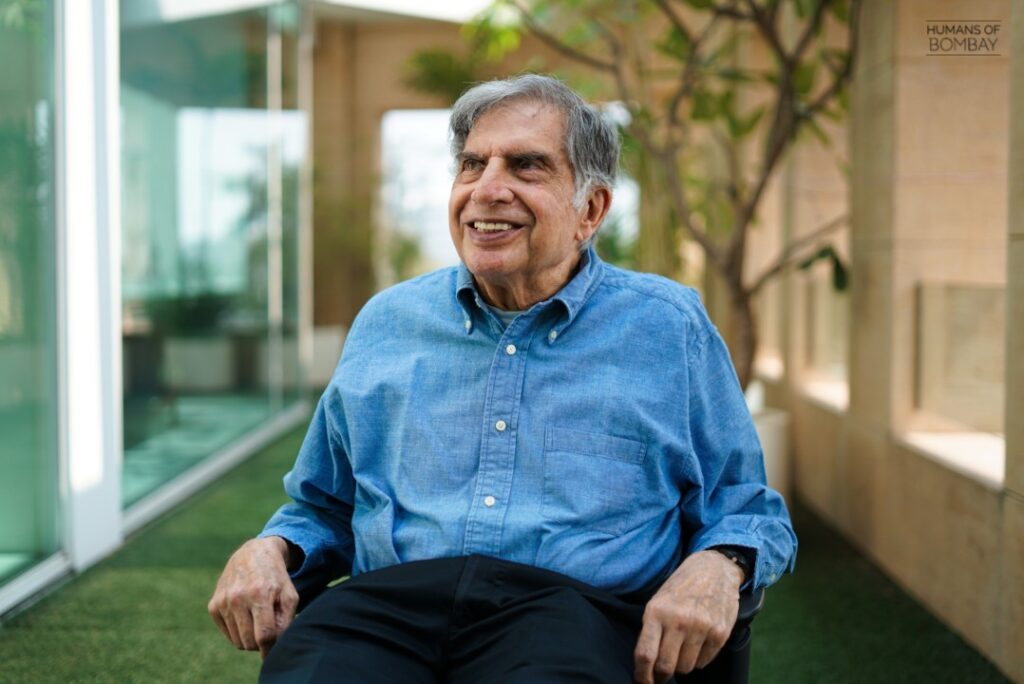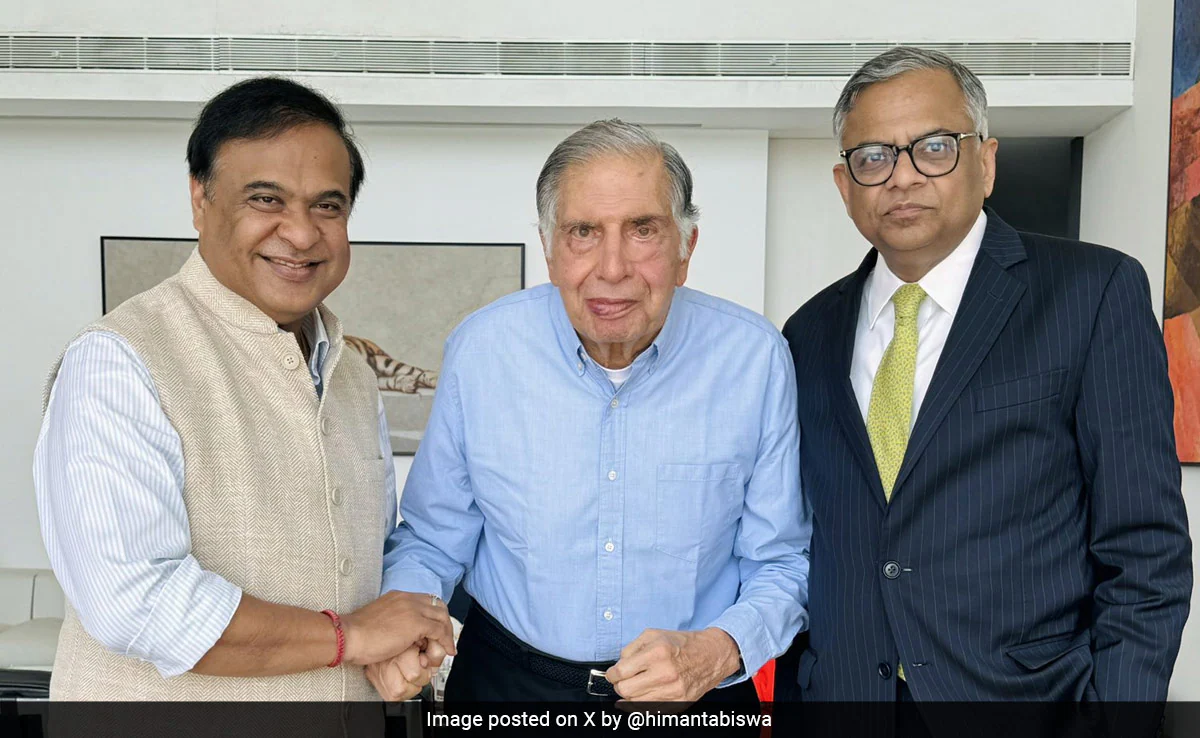Renowned industrialist and philanthropist Ratan Tata has expressed strong confidence in Tata’s foray into semiconductor manufacturing in Assam, foreseeing a significant enhancement of the state’s global standing. Assam’s Chief Minister Sarma recently paid a visit to Ratan Tata and N Chandrasekaran, Chairman of Tata Sons, to convey gratitude for the establishment of the semiconductor facility.
Table of Contents
Rs 27,000 crore
Scheduled to kick off operations by 2025, the semiconductor facility is poised to further accelerate Assam’s socio-economic progress. Spearheaded by Tata Semiconductor Assembly and Test Pvt Ltd (“TSAT”), this initiative entails an investment of Rs 27,000 crore.
Taking to Instagram, Ratan Tata emphasized the profound impact of investments in Assam, particularly in the realm of cancer care. This joint endeavor between the Assam government and the Tata group aims to position Assam as a pivotal player in the semiconductor industry. Chief Minister Sarma outlined plans for a skill development center, offering courses in Artificial Intelligence and electronics, aimed at empowering the local youth.
Ratan Tata’s recent Instagram update garnered widespread acclaim, with users commending his visionary leadership. This initiative underscores Tata’s unwavering commitment to driving innovation and progress in Assam, strengthening the bond between the conglomerate and the state.
Assam CM Sarma Holds Talks with Ratan Tata, Extends Gratitude for “Transformative Investment”
Assam’s Chief Minister, Himanta Biswa Sarma, recently engaged in discussions with industrialist Ratan Tata to express his appreciation for Tata’s upcoming ₹ 27,000 crore semiconductor plant in the state. This project by Tata Electronics Private Limited, slated for Morigaon’s Jagiroad, aims to enhance Assam’s position in the global semiconductor market and reshape the economic dynamics of East India, according to Sarma following his meetings with Tata and Tata Sons chairman N Chandrasekaran in Mumbai.
In conveying thanks on behalf of the people of Assam, Sarma emphasized the importance of this “game-changing investment” and expressed gratitude to Ratan Tata and N Chandrasekaran for their steadfast belief in the state’s potential. With the expectation of the first semiconductor chips being rolled out by 2025, Sarma stressed the pivotal role this venture will play in the region’s advancement.
During the discussions, Sarma also explored the possibility of establishing a Skill Development Centre within the premises of the semiconductor facility in Morigaon’s Jagiroad. This center aims to equip youths from the Northeast with skills in Artificial Intelligence, semiconductors, and electronics, thereby enhancing their employment opportunities within the Jagiroad unit.
Sarma further emphasized that the Skill Development Centre will capitalize on the ongoing training initiatives at Tata facilities in and around Bangalore, where 1,500 youth from Assam, predominantly women, are currently undergoing training. He highlighted that this initiative will prepare them for leadership positions once the semiconductor facility begins operations in 2025.
Prime Minister Narendra Modi
Of note, Prime Minister Narendra Modi recently laid the foundation stone for the Outsourced Semiconductor Assembly and Test (OSAT) facility in Morigaon. This initiative, launched under the Modified Scheme for Semiconductor Assembly, Testing, Marking, and Packaging (ATMP) by Tata Electronics Private Limited, underscores the joint commitment of the government and the industry to strengthen India’s semiconductor manufacturing capabilities.
About Ratan Naval Tata
Ratan Naval Tata, born on December 28, 1937, is a notable figure in Indian business, renowned for his multifaceted roles as an industrialist, philanthropist, and former chairman of Tata Sons. Leading the Tata Group from 1990 to 2012, with an interim stint from October 2016 to February 2017, he remains actively involved in overseeing its philanthropic initiatives. Acknowledged for his contributions, he was honored with the Padma Vibhushan in 2008 and the Padma Bhushan in 2000, prestigious accolades in India’s civilian honors.
Deeply rooted in the Tata legacy, Ratan Naval Tata is the son of Naval Tata, who was adopted by Ratanji Tata, descendant of Jamsetji Tata, the visionary founder of the Tata Group. Graduating from Cornell University College of Architecture with a bachelor’s degree in architecture, he embarked on his career at Tata in 1961, starting from the shop floor of Tata Steel and steadily ascending the organizational hierarchy. Assuming the chairmanship of Tata Sons following J. R. D. Tata’s retirement in 1991, Ratan Tata led the conglomerate through transformative acquisitions like Tetley, Jaguar Land Rover, and Corus, enhancing its global presence.
Aside from his corporate leadership, Ratan Tata is celebrated for his philanthropic endeavors, dedicating a significant portion, approximately 60–65% of his income, to various charitable causes. Furthermore, he actively participates as an investor in numerous startups, with investments in over 30 startups to date, both individually and through his investment firm, contributing to the advancement of innovation and entrepreneurship in the startup ecosystem.


